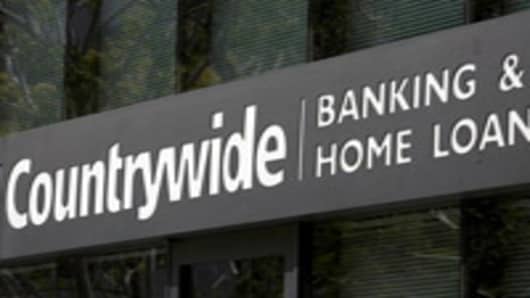"Countrywide is treating the Federal Home Loan Bank system like its personal ATM," Schumer, a New York Democrat who heads the housing panel of the Senate Banking Committee, said in the letter. "At a time when Countrywide's mortgage portfolio is deteriorating drastically, FHLB's exposure to Countrywide poses an unreasonable risk."
News of Schumer's letter, first reported by the Wall Street Journal, helped trigger a selloff in the stock market and pushed the yield on the 10-year Treasury to 3.81%, its lowest level in nearly four years.
Shares of Countrywide closed down 10.5 percent at $8.64 on Monday. Last Wednesday the shares closed below $10 for the first time in more than five years.
Schumer wrote Ronald Rosenfeld, chairman of the Federal Housing Finance Board, who oversees the system of 12 regional banks that offer financing to mortgage lenders like Washington Mutual and World Savings Bank, which was bought by Wachovia in May 1996.
Countrywide has done its borrowing through the Atlanta Home Loan Bank. Both Rosenfeld's office and the Atlanta bank declined to comment on the Schumer letter.
The Home Loan Bank system raises money by issuing bonds guaranteed by all their members and which investors give a preferred status because of an implied government backing.
For Countrywide, the Home Loan Banks have offered a source of relatively cheap and steady funding in recent months as its own bonds are now trading at junk status.
Countrywide increased its FHLB borrowing from $28.83 billion in the three months between mid-year and the end of September.



